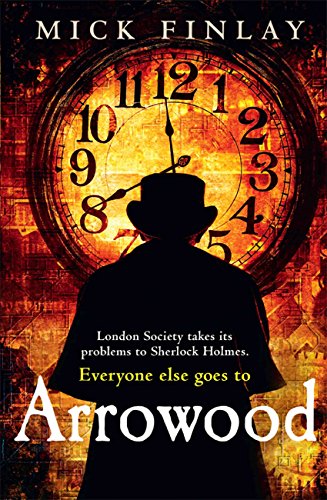Arrowood
This highly readable novel plunges the reader into a mystery: what has happened to the brother of the beautiful and enigmatic Frenchwoman, Miss Caroline Cousture? Set in the late 19th century, the private detective Arrowood and his sidekick Barnett, the narrator, are in competition with Sherlock Holmes. Whilst Holmes solves crime for London’s elite, Arrowood and friend live and work in the other London, the land of the poor. London, at the turn of the century, is a place where the divisions between rich and poor are widening, with those at the bottom of the heap forced into crime of all sorts, whilst the political elite is entangled in scandals and escapades. And there’s a serial killer on the loose. Arrowood’s task here is to discover why the young Frenchman has disappeared and who has a hand in it. His task is rendered more complicated because Miss Cousture is lying to him.
Arrowood’s strengths are his knowledge of people and their interlinked histories; he despises “Sherlock blooming Holmes”, as he calls him, whilst envying his publicity (in The Strand magazine, of course) and his wealth. This plot-line could have done with a little editing; overall, however, the novel is readable and pacey. The novel has a heavy dose of well-described violence, particularly at the hands of one group of gangsters, but also from coppers, coopers and Fenians. Black humour runs through the novel, lightening a story that could be at risk at times of being a detective version of Mayhew’s London. There is tenderness too, in the depiction of the lonely Arrowood’s relationship with a local scamp, Neddy. Readers of historical detective fiction will enjoy this well-set, darkly humorous addition to the canon.










